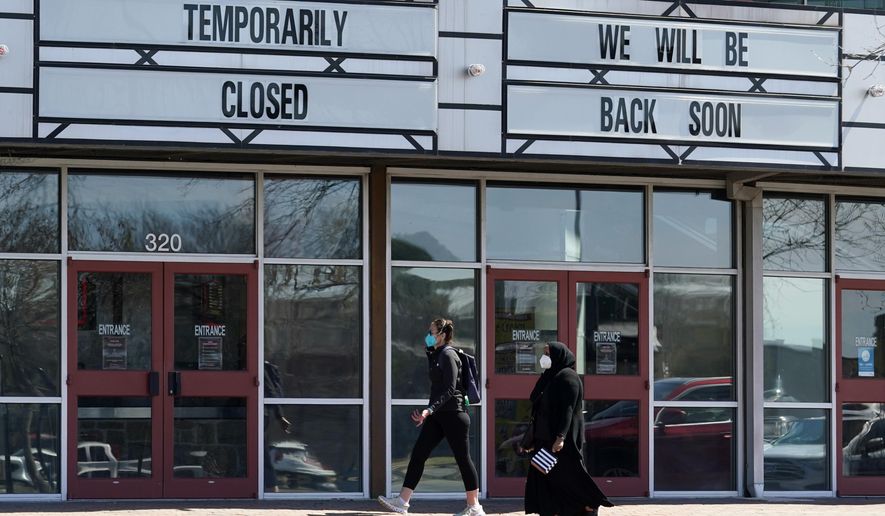The Small Business Administration had to suspend an application portal for a new coronavirus relief program Thursday a day after a government watchdog cast doubt on whether the SBA was prepared to properly oversee it.
The application portal for the Shuttered Venue Operators Grant Program had been set to go live at noon on Thursday.
By the early afternoon, the SBA said it was experiencing a “technical issue” with the portal as frustrated would-be users griped about difficulties in navigating the system.
“SBA is working closely with the portal vendors to reopen as soon as possible,” said a message posted to the agency’s website. “SBA will share advance notice of the time and date before the reopening so all applicants can be prepared and to ensure equitable access.”
The SBA’s Office of Inspector General had warned on Wednesday that the SBA does not have adequate staffing or a clear plan in place to properly oversee the program, which doles out grants for shuttered theaters and venues that suffered revenue losses during the pandemic.
The office for the program has one designated official and its staff are on temporary detail, the OIG report said.
“OIG believes that SBA does not have the staff necessary to provide effective oversight over the SVOG program,” the report said. “At this time, SBA has not formalized a plan for staffing this office relative to the volume of applications expected. The agency has also not defined the organizational structure for administering the program.”
Rep. Blaine Luetkemeyer of Missouri, the top Republican on the House Small Business Committee, had said the launch should be delayed in light of the report.
“This program requires immediate attention and action, and I am calling on the SBA to suspend the start of this program until serious and major changes are made to protect the integrity of both the program and taxpayer dollars,” Mr. Luetkemeyer said late Wednesday.
The SBA confirmed Thursday morning that the application portal for the program was still set to go live at noon.
Earlier Thursday, an agency spokeswoman said the SBA was confident in its efforts and that they submitted a “thorough and rigorous oversight and audit plan” for the program.
“The SBA is working hard to support our nation’s entrepreneurs and small businesses and we are committed to continuing assessments and making modifications where appropriate,” SBA spokeswoman Andrea Roebker said in an email. “Consistent with President Biden’s statements on the importance of preventing waste, fraud and abuse for the economic relief programs, we will continue to work with the IG’s office on this and other SBA programs that are made available to the American people.”
Congress authorized the program, which doles out grants to shuttered theaters, museums and zoos that have lost money due to the pandemic, as part of a coronavirus relief package former President Trump signed into law in December.
Congress authorized $15 billion for the program in December and an additional $1.25 billion as part of the $1.9 trillion relief package President Biden signed into law last month.
The OIG report said the award formula is structured so that a scant amount of grant recipients, who can apply for awards of up to $10 million, would be subject to an audit.
“Based on this framework, [the] audit plan exposes billions of dollars to potential misuse of funds because the bulk of grant funds will not be subject to a reasonable degree of scrutiny,” the report said.
There’s also apparently no real requirement to track the estimated number of jobs the program saves or creates.
“Without specific grantee performance reporting requirements, the stakeholders will disburse $16.25 billion without knowing whether the program successfully made an impact on the small businesses in the live arts and entertainment industry that were impacted by the pandemic,” the report said.
In a statement issued late Wednesday, SBA Administrator Isabel Guzman had touted the long-awaited launch of the program.
“The SBA is committed to moving as quickly as possible to deliver this vital funding effectively and equitably - ensuring relief goes to those venue operators whose revenues have been most impacted by the pandemic,” she said.
• David Sherfinski can be reached at dsherfinski@washingtontimes.com.




Please read our comment policy before commenting.